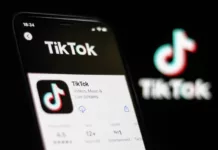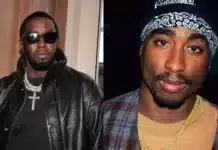
Supreme Court to Decide TikTok Ban in the US
The U.S. Supreme Court has announced it will hear arguments on January 10 regarding a controversial law that could lead to the banning of TikTok in the United States.
At the center of the debate is ByteDance, TikTok’s parent company, and its Chinese ownership, which has sparked concerns about national security, data privacy, and freedom of speech.
What’s at Stake?
If the court upholds the law, TikTok must be sold by January 19 or face a nationwide ban. This would not only disrupt the lives of over 150 million American users but also impact the businesses and creators who rely on the platform for income and engagement. The case raises fundamental questions about government overreach and the protection of free speech under the First Amendment.
The Legal Battle
The Biden administration, citing security concerns, has argued that TikTok’s ties to ByteDance could allow the Chinese government to access user data or influence content. Lawmakers supporting the ban claim it is a necessary step to protect national security. However, critics argue that banning TikTok infringes on the First Amendment rights of users and creators, who view the platform as a space for expression and community building.
Divestment or Ban?
The law being challenged requires ByteDance to divest its ownership of TikTok to a U.S.-based entity. ByteDance has repeatedly denied allegations of data misuse and has implemented measures to ensure U.S. user data remains secure, such as storing it on American servers managed by Oracle. However, the U.S. government remains skeptical, leading to this high-stakes legal showdown.
Economic Implications
The potential ban carries significant economic consequences. TikTok is a revenue-generating powerhouse, especially for small businesses and independent creators. According to recent reports, TikTok has contributed billions of dollars to the U.S. economy through advertising, brand deals, and creator monetization. A ban could force businesses to find alternative platforms, while creators face uncertainty over their futures.
First Amendment Challenges
Legal experts suggest the case will be a litmus test for the extent of governmental power over private platforms. Can the government restrict access to an app widely used for free expression without violating constitutional protections? This question will likely dominate the Supreme Court’s deliberations.
Public and Political Reactions
The public response has been polarized. Some Americans support the ban, viewing TikTok as a potential threat to national security, while others see it as an unnecessary overreach that undermines personal freedoms. Lawmakers are equally divided, with bipartisan support for both sides of the argument adding to the complexity of the case.
What Happens Next?
All eyes will be on the Supreme Court as oral arguments unfold in January. If the ban goes into effect, it could set a precedent for how the U.S. government handles foreign-owned digital platforms moving forward. For TikTok users, creators, and businesses, the next few weeks will be crucial in determining the platform’s future in the country.
- TikTok Ban Update for US: Will the App Disappear Tomorrow? - January 19, 2025
- Bad Bunny Smashes Spotify Record with Latest Album - January 19, 2025
- Roger Nores Sues Liam Payne’s Father for £8.1 Million - January 18, 2025














